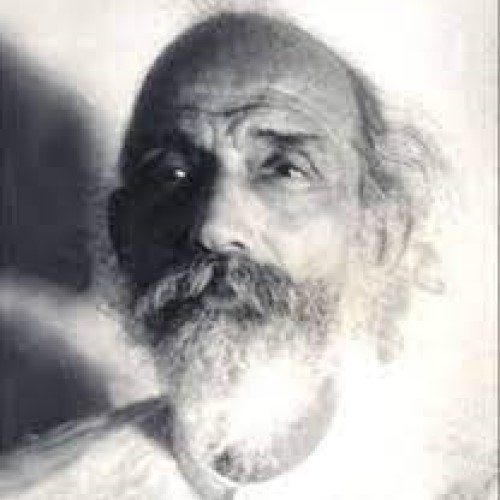Early Life
Purushottam Das Tandon, also known by the title Rajarshi, was born on 1 August 1882 in Allahabad, Uttar Pradesh. After being home-schooled, he went on to complete an LLB and M.A. (History) at Muir Central College, Allahabad in 1904.
In 1906, Tandon began his law practice and by 1908 he was working at the Allahabad High Court under the lawyer and Liberal Party leader, Tej Bahadur Sapru. Sapru would go on to a be a key figure in various Indian and British led constitutional reform projects.
Tandon left the legal profession in 1921 to become a full-time politician.
Role in India’s Independence Movement
Tandon’s political career had already begun in college when he joined the Indian National Congress. After his undergraduate studies, parallel to his legal career, Tandon represented Allahabad at the 1906 All India Congress Committee. In 1923, he was President of the Gorakhpur District Congress Committee. In less than 10 years, he became a member of the Congress Working Committee – the primary decision-making authority in the Congress Party. Considering the depth of Tandon’s party work, his rise within the administrative ranks of the Congress was inevitable.
His political life outside the Party was similar to other Congress leaders. He was arrested multiple times for his role in the Non-Cooperation and Quit India movements and was actively involved in farmer movements, becoming the President of the Kisan Sabha in 1934. But Tandon was ideologically distinct from most of his Congress colleagues. He represented the extreme right of the political spectrum and was in many ways the archetype of the Hindu-Hindi nationalist.
From the 1920s, he was close to the Arya Samaj, a Hindu revivalist organisation, serving as the President of the Arya Samaj Punjab National bank for a period of 4 years. His campaign for Indian independence was built on the idea of India’s cultural difference from the West. He saw Hindi as a means to establish this difference and consolidate Indian society. As a leader of the Hindi Sahitya Sammelan (since 1910), he championed for Hindi in the Nagari script as India’s only national language. His push for Hindi was combined with a deep hostility towards Urdu and a belief that regional language speakers had to be actively converted to Hindi speakers.
Tandon did not believe in Gandhian Ahimsa and instead supported Hindu militarism to mobilize and consolidate Hindu society. To this effect he volunteered with several organizations and set up the Hindu Rakshak Dal in 1947 that prioritized physical training and military-like defence for the community. He also worked with Lala Lajpat Rai’s Servants of the People Society that mobilized and trained social workers as missionaries in service of the country. After Rai’s death in 1928, Tandon became its President.
Tandon entered a legislature for the first time as the Speaker of the United Provinces Legislative Assembly. Breaking convention, he refused to resign from his Party position after his election as Speaker, which infuriated the Assembly including the Congress members. In an outburst, he challenged the members of the Assembly to bring him down if he were to ever act in a partisan manner. He remained as the Speaker for another 13 years.
Contribution to Constitution Making
Tandon was elected to the Constituent Assembly from the United Provinces on a Congress Party ticket. He actively participated in the Assembly and intervened in debates around national language, restrictions on conversion and the passing of the Objectives Resolution. His speeches were often laced with Hindu-Hindi nationalism.
Later Contributions
In 1950, Tandon, to the horror of Jawaharlal Nehru, became the President of the Congress. Nehru was deeply concerned with Tandon’s right wing leanings that he mobisiled other liberal Congressmen against Tandon. But Tandon had his supporters as well. The two camps were aggressively postured against each other and tensions rose steadily. The frictions between the two camps became quite serious and required Congress heavyweights like Sardar Patel – who was a Tandon supporter – to step in and (unsuccessfully) mediate the conflict. Hostilities continued until Tandon resigned from his position in 1951.
He was elected to the Lok Sabha in 1952, and was nominated to the Rajya Sabha in 1956.
In 1961, Tandon was conferred with India’s highest civilian award, the Bharat Ratna, for his contribution to public affairs.
Key Writings
Tandon was proficient in Urdu, Persian and Hindi. He spent much of his life working towards popularising Hindi in India through his work with organisations like the Hindi Sahitya Sammelan and the Rashtrabhasha Prachar Samiti. He wrote extensively for Abhyudaya, a prominent Hindi newspaper.
Many of his essays have been compiled into a book, Ṭaṇḍana Nibandhāvali. He also wrote The Unforgettable Nehru, a biographical account of Jawaharlal Nehru.
- As a core member of what Granville Austin called the Assembly’s ‘Hindi-wallahs’, Tandon aggressively advocated for Hindi in the Devanagari script as India’s national language.
- During the debate on the Objectives Resolution, he vociferously opposed the idea of waiting for the Muslim League to continue with constitution-making.
- Tandon opposed granting the freedom of religious conversion, arguing that it woud be misused.
- Purushottam Das Tandon’s speech in the Constituent Assembly (Prasar Bharati Archives)
- Reviving old memories – Extracts of P.D.Tandon’s speech on inaugurating the new rotary press of the newspaper, The Leader (National Archives of India)
- Post card letter from Acharya J.B. Kripalani to Purushottam Das Tandon (Allahabad Museum)
- Yours Sincerely: A collection of letters written to P.D. Tandon (Arnold-Heinemann Publishers, 1975)
- Purushottam Das Tandon (Past Party President Profile on the official website of the Indian National Congress)
- Congress Radicals and Hindu Militancy: Sampurnanand and Purushottam Das Tandon in the Politics of the United Provinces, 1930-1947 by William Gould (Modern Asian Studies, 2002)
- Hindu Militarism, P.D. Tandon and the Politics of Scale in 1940s Uttar Pradesh by William Gould (Oxford University Podcast, 2019)

